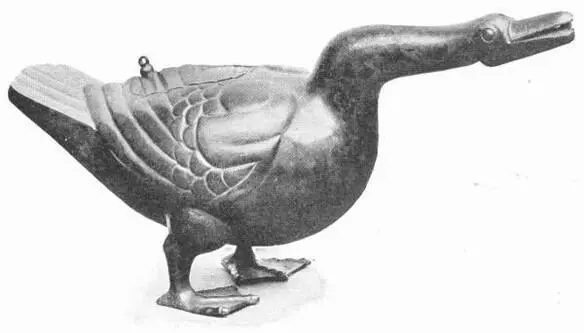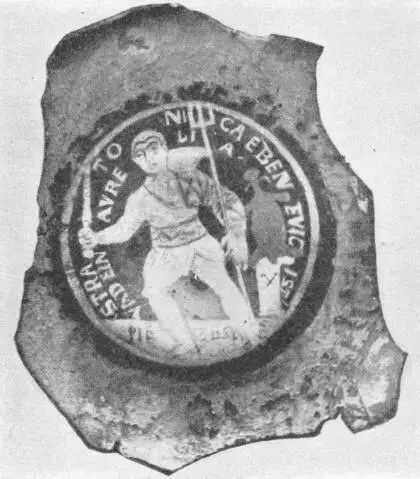Herbert Wells - A Short History of the World
Здесь есть возможность читать онлайн «Herbert Wells - A Short History of the World» весь текст электронной книги совершенно бесплатно (целиком полную версию без сокращений). В некоторых случаях можно слушать аудио, скачать через торрент в формате fb2 и присутствует краткое содержание. Год выпуска: 2011, Жанр: История, на английском языке. Описание произведения, (предисловие) а так же отзывы посетителей доступны на портале библиотеки ЛибКат.
- Название:A Short History of the World
- Автор:
- Жанр:
- Год:2011
- ISBN:нет данных
- Рейтинг книги:4 / 5. Голосов: 1
-
Избранное:Добавить в избранное
- Отзывы:
-
Ваша оценка:
- 80
- 1
- 2
- 3
- 4
- 5
A Short History of the World: краткое содержание, описание и аннотация
Предлагаем к чтению аннотацию, описание, краткое содержание или предисловие (зависит от того, что написал сам автор книги «A Short History of the World»). Если вы не нашли необходимую информацию о книге — напишите в комментариях, мы постараемся отыскать её.
A Short History of the World — читать онлайн бесплатно полную книгу (весь текст) целиком
Ниже представлен текст книги, разбитый по страницам. Система сохранения места последней прочитанной страницы, позволяет с удобством читать онлайн бесплатно книгу «A Short History of the World», без необходимости каждый раз заново искать на чём Вы остановились. Поставьте закладку, и сможете в любой момент перейти на страницу, на которой закончили чтение.
Интервал:
Закладка:

CHINESE VESSEL IN BRONZE, IN FORM OF A GOOSE
Dating from before the time of Shi-Hwang-ti. Such a piece of work indicates a high level of comfort and humour
(In the Victoria and Albert Museum)
But for a time the line of least resistance for hungry nomads lay neither to the west nor the east but through central Asia and then south-eastward through the Khyber Pass into India. It was India which received the Mongolian drive in these centuries of Roman and Chinese strength. A series of raiding conquerors poured down through the Punjab into the great plains to loot and destroy. The empire of Asoka was broken up, and for a time the history of India passes into darkness. A certain Kushan dynasty founded by the “Indo- Scythians”—one of the raiding peoples—ruled for a time over North India and maintained a certain order. These invasions went on for several centuries. For a large part of the fifth century A.D. India was afflicted by the Ephthalites or White Huns, who levied tribute on the small Indian princes and held India in terror. Every summer these Ephthalites pastured in western Turkestan, every autumn they came down through the passes to terrorize India.
In the second century A.D. a great misfortune came upon the Roman and Chinese empires that probably weakened the resistance of both to barbarian pressure. This was a pestilence of unexampled virulence. It raged for eleven years in China and disorganized the social framework profoundly. The Han dynasty fell, and a new age of division and confusion began from which China did not fairly recover until the seventh century A.D. with the coming of the great Tang dynasty.
The infection spread through Asia to Europe. It raged throughout the Roman Empire from 164 to 180 A.D. It evidently weakened the Roman imperial fabric very seriously. We begin to hear of depopulation in the Roman provinces after this, and there was a marked deterioration in the vigour and efficiency of government. At any rate we presently find the frontier no longer invulnerable, but giving way first in this place and then in that. A new Nordic people, the Goths, coming originally from Gothland in Sweden, had migrated across Russia to the Volga region and the shores of the Black Sea and taken to the sea and piracy. By the end of the second century they may have begun to feel the westward thrust of the Huns. In 247 they crossed the Danube in a great land raid, and defeated and killed the Emperor Decius in a battle in what is now Serbia. In 236 another Germanic people, the Franks, had broken bounds upon the lower Rhine, and the Alemanni had poured into Alsace. The legions in Gaul beat back their invaders, but the Goths in the Balkan peninsula raided again and again. The province of Dacia vanished from Roman history.
A chill had come to the pride and confidence of Rome. In 270-275 Rome, which had been an open and secure city for three centuries, was fortified by the Emperor Aurelian.
XXXV
THE COMMON MAN’S LIFE UNDER THE EARLY ROMAN EMPIRE
BEFORE we tell of how this Roman empire which was built up in the two centuries B.C., and which flourished in peace and security from the days of Augustus Cæsar onward for two centuries, fell into disorder and was broken up, it may be as well to devote some attention to the life of the ordinary people throughout this great realm. Our history has come down now to within 2000 years of our own time; and the life of the civilized people, both under the Peace of Rome and the Peace of the Han dynasty, was beginning to resemble more and more clearly the life of their civilized successors to-day.
In the western world coined money was now in common use; outside the priestly world there were many people of independent means who were neither officials of the government nor priests; people travelled about more freely than they had ever done before, and there were high roads and inns for them. Compared with the past, with the time before 500 B.C., life had become much more loose. Before that date civilized men had been bound to a district or country, had been bound to a tradition and lived within a very limited horizon; only the nomads traded and travelled.
But neither the Roman Peace nor the Peace of the Han dynasty meant a uniform civilization over the large areas they controlled. There were very great local differences and great contrasts and inequalities of culture between one district and another, just as there are to-day under the British Peace in India. The Roman garrisons and colonies were dotted here and there over this great space, worshipping Roman gods and speaking the Latin language; but where there had been towns and cities before the coming of the Romans, they went on, subordinated indeed but managing their own affairs, and, for a time at least, worshipping their own gods in their own fashion. Over Greece, Asia Minor, Egypt and the Hellenized East generally, the Latin language never prevailed. Greek ruled there invincibly. Saul of Tarsus, who became the apostle Paul, was a Jew and a Roman citizen; but he spoke and wrote Greek and not Hebrew. Even at the court of the Parthian dynasty, which had overthrown the Greek Seleucids in Persia, and was quite outside the Roman imperial boundaries, Greek was the fashionable language. In some parts of Spain and in North Africa, the Carthaginian language also held on for a long time in spite of the destruction of Carthage. Such a town as Seville, which had been a prosperous city long before the Roman name had been heard of, kept its Semitic goddess and preserved its Semitic speech for generations, in spite of a colony of Roman veterans at Italica a few miles away. Septimius Severus, who was emperor from 193 to 211 A.D., spoke Carthaginian as his mother speech. He learnt Latin later as a foreign tongue; and it is recorded that his sister never learnt Latin and conducted her Roman household in the Punic language.

In such countries as Gaul and Britain and in provinces like Dacia (now roughly Roumania) and Pannonia (Hungary south of the Danube), where there were no pre-existing great cities and temples and cultures, the Roman empire did however “Latinize.” It civilized these countries for the first time. It created cities and towns where Latin was from the first the dominant speech, and where Roman gods were served and Roman customs and fashions followed. The Roumanian, Italian, French and Spanish languages, all variations and modifications of Latin, remain to remind us of this extension of Latin speech and customs. North-west Africa also became at last largely Latin-speaking. Egypt, Greece and the rest of the empire to the east were never Latinized. They remained Egyptian and Greek in culture and spirit. And even in Rome, among educated men, Greek was learnt as the language of a gentleman and Greek literature and learning were very, properly preferred to Latin.
In this miscellaneous empire the ways of doing work and business were naturally also very miscellaneous. The chief industry of the settled world was still largely agriculture. We have told how in Italy the sturdy free farmers who were the backbone of the early Roman republic were replaced by estates worked by slave labour after the Punic wars. The Greek world had had very various methods of cultivation, from the Arcadian plan, wherein every free citizen toiled with his own hands, to Sparta, wherein it was a dishonour to work and where agricultural work was done by a special slave class, the Helots. But that was ancient history now, and over most of the Hellenized world the estate system and slave-gangs had spread. The agricultural slaves were captives who spoke many different languages so that they could not understand each other, or they were born slaves; they had no solidarity to resist oppression, no tradition of rights, no knowledge, for they could not read nor write. Although they came to form a majority of the country population they never made a successful insurrection. The insurrection of Spartacus in the first century B.C. was an insurrection of the special slaves who were trained for the gladiatorial combats. The agricultural workers in Italy in the latter days of the Republic and the early Empire suffered frightful indignities; they would be chained at night to prevent escape or have half the head shaved to make it difficult. They had no wives of their own; they could be outraged, mutilated and killed by their masters. A master could sell his slave to fight beasts in the arena. If a slave slew his master, all the slaves in his household and not merely the murderer were crucified. In some parts of Greece, in Athens notably, the lot of the slave was never quite so frightful as this, but it was still detestable. To such a population the barbarian invaders who presently broke through the defensive line of the legions, came not as enemies but as liberators.
Читать дальшеИнтервал:
Закладка:
Похожие книги на «A Short History of the World»
Представляем Вашему вниманию похожие книги на «A Short History of the World» списком для выбора. Мы отобрали схожую по названию и смыслу литературу в надежде предоставить читателям больше вариантов отыскать новые, интересные, ещё непрочитанные произведения.
Обсуждение, отзывы о книге «A Short History of the World» и просто собственные мнения читателей. Оставьте ваши комментарии, напишите, что Вы думаете о произведении, его смысле или главных героях. Укажите что конкретно понравилось, а что нет, и почему Вы так считаете.








